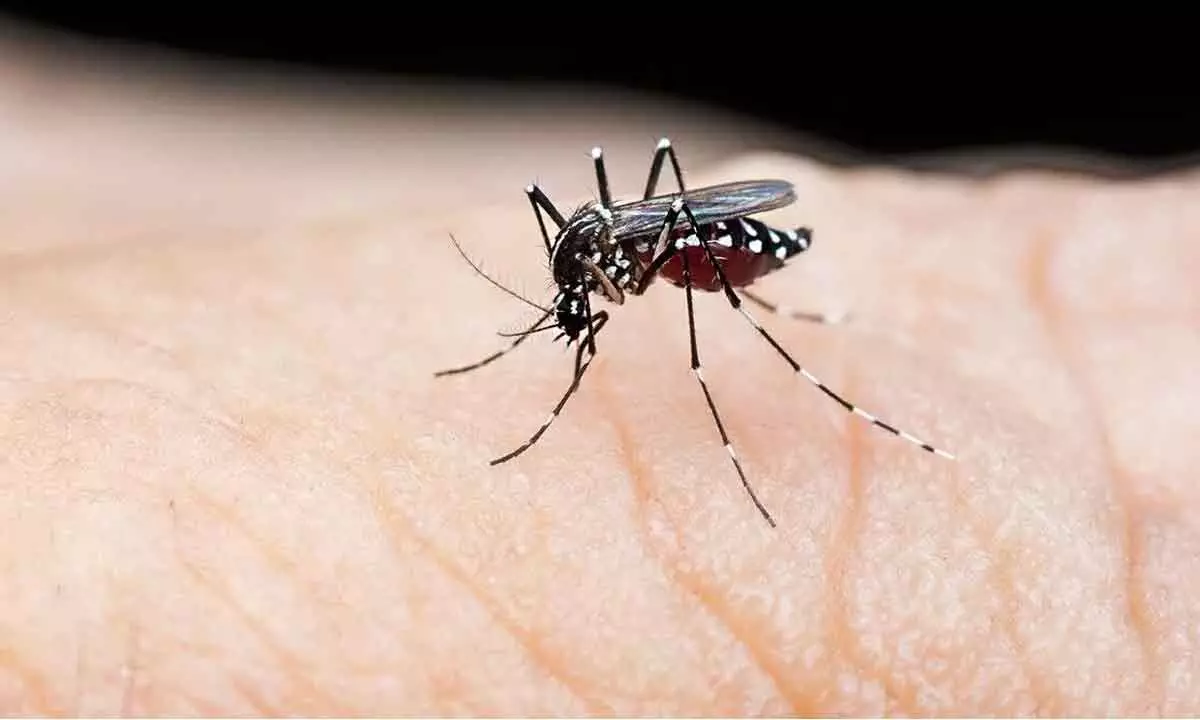Warming temperatures to spike dengue in US, Europe: WHO scientist
Share :

Increasing climate change is expected to drive dengue, a mosquito-borne disease that kills thousands of people every year, to newer areas like the US and Europe, warned a scientist at the World Health Organization (WHO) calling health authorities to start preparing to combat the disease.
London: Increasing climate change is expected to drive dengue, a mosquito-borne disease that kills thousands of people every year, to newer areas like the US and Europe, warned a scientist at the World Health Organization (WHO) calling health authorities to start preparing to combat the disease.
Data shows that about 20,000 people die from dengue fever every year mostly in Asia and South America. The disease has a fatality rate of one death per 100 patients.
In 2023, and as of October, over 4.2 million cases and over 3,000 dengue-related deaths have been reported from 79 countries/territories globally, according to data from the European Centre for Disease Prevention and Control.
India, Brazil, Peru, Bangladesh, Bolivia, Argentina, Mexico, Philippines, Nicaragua, and Colombia were the countries with the most number of cases.
According to Sir Jeremy Farrar, chief scientist at the WHO, warming temperatures are allowing mosquitoes that can carry the disease to venture deeper into the US, Europe and even in new places in Africa, Daily Mail reported.
Every year there are about 1,200 cases recorded in the US, nearly 600 of which are locally-acquired infections. But there are concerns the disease is spreading after California recorded its first locally-acquired infection for a decade last month.
Scientists say dengue fever could become endemic in the US if infected mosquitoes in Mexico manage to move further North.
"Dengue, which is classically a South American, South East Asian disease and is hyperendemic in those countries (has) spread North, you're now seeing transmission in the Mediterranean," said Professor Sir Peter Horby, director of the Pandemic Sciences Institute at Oxford University.
As per experts, infected travellers could introduce the virus if they are bitten by local mosquitoes, which then become infected and start transmitting the disease to other people, the report said. Farrar called on health authorities to start preparing.
The WHO had in April warned that climate change can lead to global outbreak of mosquito-borne diseases dengue, Zika and Chikungunya.
The incidence of infections caused by arboviruses, such as dengue, Zika and Chikungunya, has grown dramatically around the world in recent decades.
The agency said about half of the world's population is now at risk of dengue with an estimated 100-400 million infections occurring each year.
“We are really at the right time to scale up the advocacy for the threat of arboviruses globally,” said Dr Raman Velayudhan, Unit Head, Global Programme on Control of Neglected Tropical Diseases at WHO.
Movement of people, urbanisation and associated problems with water and sanitation, are the factors leading to continuous spread of vectors into new regions, Velayudhan noted.
“And in terms of climatic change, certainly increased precipitation, higher temperature, higher humidity all favours the mosquito,” he said, adding “the virus and the vectors also multiply faster in higher temperature.”






